-

Japan’s New (Economic) Security Agenda and Emerging Regional Leadership
Michael Beeman, Patricia Maclachlan and Ulrike Schaede discuss the opportunities and threats for Japan in light of rising national economic security concerns, in particular for supply chain resilience, trade and tariffs, and food security. -

Japanese Business and Politics in the Shadow of Trump’s Tariffs, with Gearoid Reidy
Gearoid Reidy of Bloomberg Tokyo discusses the effects of the shifting U.S. policies on Japanese business and economic policies. -
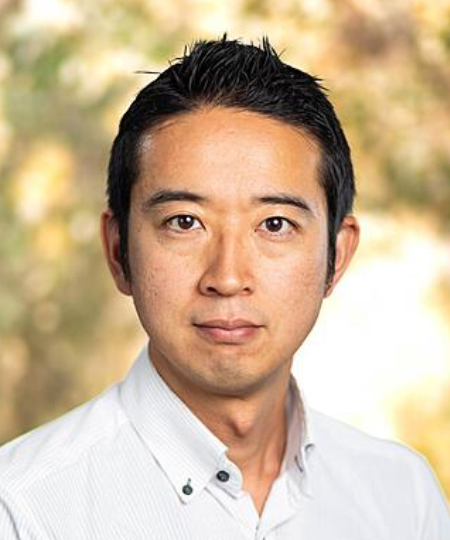 Yuji Idomoto, postdoctoral scholar at GPS, discusses the impact of unexpected U.S. foreign policy shifts on Japan.
Yuji Idomoto, postdoctoral scholar at GPS, discusses the impact of unexpected U.S. foreign policy shifts on Japan.
-

Walking Out: Implications of America's New Trade Policy for Japan
Michael Beeman, formerly USTR, discusses his book “Walking Out” on how over the past two decades America has undercut the very trade rules it created after WWII, and how that withdrawal affects Japan.
-

U.S.-Japan Relations in a Changing International Order
Phillip Lipscy, University of Toronto, discusses the increasing fragility of international institutions and how it may affect the relative roles of the U.S. and Japan globally. -
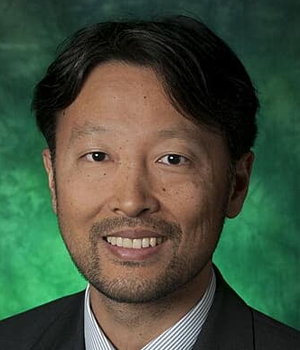
Japan’s New Prime Minister: What to Expect in the Upcoming Election, with Ko Maeda
Professor Ko Maeda discusses the selection of Japan’s new Prime Minister Ishiba, the situation of the opposition parties, and the outlook for the upcoming election October 2024 election. -
 Noriyuki Shikata of the Cabinet Office discusses Prime Minister Kishida’s policy priorities in 2024.
Noriyuki Shikata of the Cabinet Office discusses Prime Minister Kishida’s policy priorities in 2024.
-
 Peter Gruss, former president of the Okinawa Institute of Science and Technology (OIST) and Germany’s Max-Planck Society, shares his insights in the organization and future of research excellence in Japan and Germany.
Peter Gruss, former president of the Okinawa Institute of Science and Technology (OIST) and Germany’s Max-Planck Society, shares his insights in the organization and future of research excellence in Japan and Germany.
-

Entrepreneurs in Japan – A View from History, with Robert Feldman and Kenji Kushida
Robert Feldman of Morgan Stanley in Tokyo and Kenji Kushida of the Carnegie Endowment for International Peace discuss the entrepreneurship in Japan based on the book "History of Innovative Entrepreneurs in Japan" by Takeo Kikkawa. -

Japan’s Economic Security and Role in Global Supply Chains, with Mariko Togashi
Mariko Togashi of IISS discusses Japan's new economic security policy and changing industrial policies, with a particular emphasis on Japan’s role in the global semiconductor production and supply chains. -

Japan’s Quiet Leadership – Reshaping the Indo-Pacific, with Mireya Solís
Mireya Solís of the Brookings Institution discusses Japan’s domestic political evolution in recent decades, and its increasing geopolitical importance in the Indo-pacific region. -
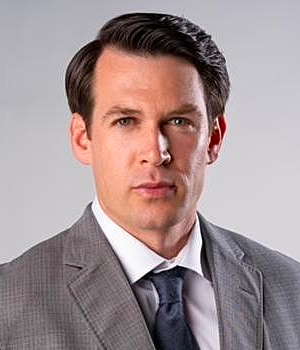
USTR and the Current State of U.S.-Japan Trade Relations, with Scott Wilbur
Scott Wilbur from USTR discusses U.S.-Japan trade relations and the shift in U.S. trade policy to a global worker-centered agenda. -

Silver Democracy: How Japan’s Aging Politicians Affect Policy Choices, with Charles McClean
While Japan’s central government is run mostly by older politicians, mayors of small- and mid-size cities are often younger. Exploiting this difference, Charles McClean explores whether age results in different policy outcomes -
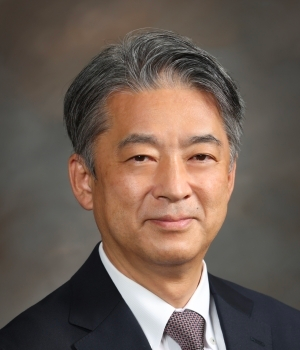
Japan and the Geo-Dynamics of the Indo-Pacific, with SONE Kenko
Japan is playing a central role in building FOIP – the Free and Open Indo-Pacific. Consul General of Japan in Los Angeles, Mr. SONE Kenko, discusses how FOIP aligns with the many multilateral agreements in the region and underscores Japan's commitment to working toward stability. -

Japan's Military Interests and Activities in the South China Sea, with John Bradford
John Bradford discusses how Japan’s military strengths and interests in the South China Sea have evolved over time, and how Japan is supporting capacity building in the region. -

How the COVID-19 Pandemic is Shaping Politics in East Asia - An Update, with Yves Tiberghien
How did the Delta and Omicron variants challenge politics and societies across East Asia? Yves Tiberghein discusses the effects of the COVID pandemic on Japan and China, and the long-term implications of pandemic policies. -
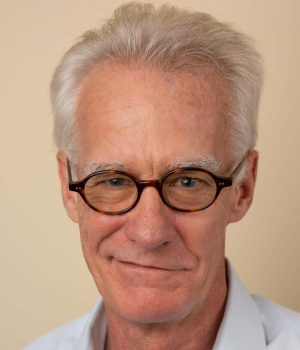
Japan and Korea in the Indo-Pacific: A Preview of 2023, with Stephan Haggard
Stephan Haggard discusses how Japan and South Korea view the shifting dynamics of the Indo-Pacific, in particular the impact of the Ukraine war and NATO, China’s 20th Party Congress, U.S. policy shifts, Taiwan, the Korean peninsula, and Japan-South Korea relations. -

The Japanese Welfare State and the Pandemic, with Margarita Estévez-Abe
How has Japan fared through the SARS-COV-2 pandemic? Margarita Estévez-Abe discusses how Japan has kept pandemic-related deaths low through long-standing practices featured at long-term care facilities and societal norms of masking, while non-working women were negatively impacted. -

The New Japan and Changing U.S.-Japan Relations – Insider Impressions from Tokyo, with John Nylin
Japan has changed, and U.S.-Japan relations are evolving accordingly as Japan is no longer the “little brother” but an equal ally. John Nylin discusses this evolution, how it positions the U.S.-Japan dynamic in a changing global order, and how domestic opinion is shifting toward more support of Japan’s new, stronger geopolitical role. -

Power Recalibrations in Northeast Asia, with Admiral Robert Thomas
How should Japan position in light of shifting power balances in Northeast Asia? Admiral Robert Thomas discusses his insights regarding Japan's position on demodernization of warfare (Ukraine), “confrontational stability” (Korean peninsula), cross-strait tensions (Taiwan), friendship “without limits”, and the discredited U.S. promise of extended deterrence credibility. -

Religion and Politics in the Aftermath of the Abe Assassination, with Levi McLaughlin
The assassination of Prime Minister Abe has shocked the world in many ways and triggered a new debate about the relation between politics and religion. Levi McLaughlin discusses the religion-politics nexus in Japan, and what may change going forward. -
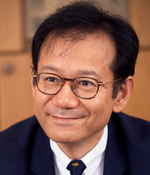
Japan’s Education System: What’s good about it and what needs to change?, with Kan Suzuki
How should Japan’s education evolve in the 21st century? Kan Suzuki discusses Japan’s recent Education Reform, and how the county’s education system is evolving to prepare for the digital transformation. -
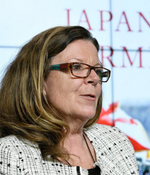
Is Japan Ready for War? Putin’s Invasion and the Taiwan Contingency, with Sheila A. Smith
What do the Ukraine War and the new, unsettled world mean for Japan's military strategy in the 21st century? Sheila A. Smith discusses how the increasingly fragile postwar order will shape the Kishida Cabinet's review of Japan’s National Security Strategy.
-
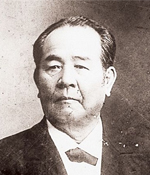
Eiichi Shibusawa's Legacy and Japan's "New Capitalism", with Robert Feldman and Patricia Maclachlan
Prime Minister Kishida Fumio has announced a plan to ensure that Japan’s “new form of capitalism” is good for all. This leans heavily on the tradition of Japan’s “father of capitalism” and “captain of industry”, Shibusawa Eiichi. By increasing the metabolism of the economy and (re)introducing redistribution, Japan hopes that growth in commerce will achieve a "triple win” for business, people, and the economy and society overall. -
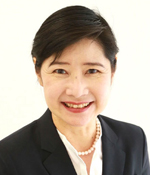
U.S.-Japan Relations under Biden-Kishida: Entering a VUCA era?, with Takako Hikotani
How will the Ukraine War affect U.S.-Japan relations going forward? Takako Hikotani, Professor of Political Science at Gakushuin, looks at current geopolitics through the Japanese lens, and discusses how current leadership in Japan is viewing allies and uncertainties in a heightened VUCA (volatility, uncertainty, complexity, ambiguity) world. -
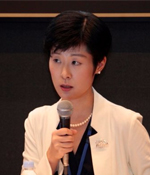 Cybersecurity is becoming more important than ever. Mihoko Matsubara discusses Japan’s successful efforts to defend against 450 million cyberattacks during the Tokyo Olympics, the creation of a Cyber Bureau in the National Police Agency, new strategies to prepare to defend, and international collaboration in fighting cybercrime.
Cybersecurity is becoming more important than ever. Mihoko Matsubara discusses Japan’s successful efforts to defend against 450 million cyberattacks during the Tokyo Olympics, the creation of a Cyber Bureau in the National Police Agency, new strategies to prepare to defend, and international collaboration in fighting cybercrime.
-

Japan’s New Economic Statecraft: What It Means for Geopolitics in 2022, with Akira Igata
Japan has seen a marked shift in its foreign policy and national security calculus, triggered by the rise of dual-use technologies, the new emphasis on a “free and open Indo-Pacific”; and the rise of China. Akira Igata discusses Japan’s new plans for using global economic policy for security gains, the rise of economic coercion, and what we can expect under Prime Minister Kishida. -
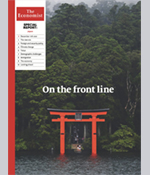
Japan in 2022, with Noah Sneider
Japan is not an outlier, but a harbinger of things to come, which makes it as relevant as ever. Noah Sneider, Tokyo Bureau Chief of The Economist, discusses what lies ahead for Japan in 2022, as the country’s strategies on geopolitics, ageing, digital disruption, climate, environment, market reforms, and “new capitalism” are evolving.
-

Women in Japanese Science, Business, and Politics, with Yuko Harayama
11/30/2021: In Japan, professional women are notoriously underrepresented in STEM and university positions, and even more so in senior business positions and politics. Dr. Yuko Harayama, former member of the Cabinet Office Council for Science, Technology and Innovation and one of the leading women in Japanese science and technology, speaks on the challenges and opportunities for women in today’s Japan, why politics seems so impenetrable, and how business can change toward more diversity and inclusion. -

Asia’s Long Exit from Overseas Coal Financing, with Michael Davidson and Toshiyuki Sakamoto
11/16/2021: Coal power expansion conflicts with global climate change mitigation goals. Recently, pressure has mounted on the builders, operators, and financiers of overseas coal-powered plants. The three remaining public financiers are all in Asia: China, Japan, and South Korea, all of whom have made official commitments to phase out their overseas lending for coal. Why have they chosen to do so? How will this affect the energy futures in countries that have historically relied on this finance? -
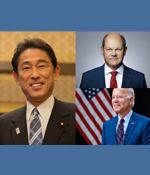 11/2/2021: As Japan tallies the votes, Germany searches for a Chancellor, and the U.S. anticipates local election outcomes, a shift in local and global political constellations is palpable. Legislative power balances are uncertain, and the center of political gravity may be moving into new directions. Japan may well change course as well, with the more moderate PM Kishida at the helm of the LDP. What will the outcome of the 10/31 election in Japan, in the context of these other shifts, mean for Japan and for geopolitics?
11/2/2021: As Japan tallies the votes, Germany searches for a Chancellor, and the U.S. anticipates local election outcomes, a shift in local and global political constellations is palpable. Legislative power balances are uncertain, and the center of political gravity may be moving into new directions. Japan may well change course as well, with the more moderate PM Kishida at the helm of the LDP. What will the outcome of the 10/31 election in Japan, in the context of these other shifts, mean for Japan and for geopolitics?
-

10/19/2021: By 2050 the populations of China, Japan, and Russia (three of the Indo-Pacific’s most powerful militaries) will shrink by 100 million, even as Asia’s population in totality will increase by over 700 million. Japan, South Korea, and China are aging rapidly, whilst others face youth bulges; meanwhile, novel security threats and technological revolutions are driving adaptation in society. Andrew Oros and Ellis Krauss discuss how these trends combine, and what they mean for the United States’ interests in the region.
-
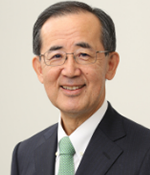
Tumultuous Times – A Conversation with Mr. Masaaki Shirakawa
09/07/2021: Watch the conversation with Masaaki Shirakawa, Bank of Japan's 30th Governor, on Japan's monetary policy and their role in 21st century international finance. Shirakawa was in office from 2008 to 2013, and as such oversaw the global financial crisis (“Lehman Shock”), the Great Tohoku Earthquake and Fukushima disaster, and a period of tremendous economic and political turbulence. He will look back on how Japan’s monetary policy experience was treated by Western economists, and suggest that we need to rethink mainstream macroeconomics. -
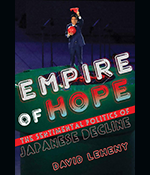
Thwarted Commemorations: The Olympics and Beyond, with David Leheny
7/20/2021: A triumphal 2020 Tokyo Olympics was PM Suga’s ideal vehicle for the message that "Japan is Back". Pandemic delays and dramatic downsizing have muted their appeal, and how it will be remembered is up for debate. In 2018, Abe’s hopes for the 150th Anniversary of the Meiji Restoration were also frustrated, though largely by divergent views of Japan’s political history and the appropriateness of national festivities; these events are often risky when they interact with larger national narratives. -
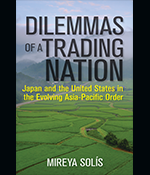
Follower No More: Japan’s Role in Shaping the Liberal Trading Order, with Mireya Solis
06/15/2021: Since 2010, Japan has emerged as an impressive major champion of the liberal economic order; they are leading the creation of mega trade deals, codifying rules for the digital economy, and orchestrating infrastructure investments in developing Asia. However, a fracturing world economy due to great power competition and resurgent economic nationalism presents new challenges for Tokyo’s leadership role as it balances its economic internationalism with defensive concerns over economic security. -
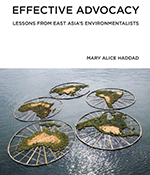
Environmental Advocacy in East Asia, with Mary Alice Haddad
5/25/2021: East Asia is dominated by pro-business governments that are generally hostile to political advocacy. Yet, those same governments have become global leaders in environmental policymaking. East Asia’s environmental advocates must be doing something right—What can we learn from them? Haddad shares insight from her new book, “Effective Advocacy: Lessons from East Asia’s Environmentalists” (MIT, 2021). -

The Future of Japan after COVID: Vision of the Committee “Choosing the Future 2.0”, with Yuri Okina
5/11/2021: In 2020, Japan pivoted Prime Minister Abe’s 2014 vision of the future to incorporate opportunities for real reform, made possible by the COVID-19 era changing Japan’s attitudes around work and society. Chairwoman of this committee, Yuri Okina, shares "Choosing the Future 2.0", a report detailing what the government, businesses, and society can do to take advantage of this critical opportunity. -

Japan's Policies for the Common People, with Patricia Maclachlan
4/13/2021: As Western democracies grapple with deepening social, economic, and political divisions, Japan appears relatively cohesive and stable. But Japan, too, has struggled with populations and economic sectors that are at risk of being “left behind,” due to industrialization, globalization and demographic change. How have consumers, postal employees, farmers and small businesses fared in Japan’s rapidly changing political economy, and at what cost? -
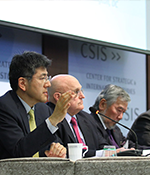
Japan’s Power and Influence in the Newly Emerging World Order, with Robert Madsen
4/6/2021: The 1945-2015 geopolitical order has come unglued. The rise of China and increasing unreliability of the U.S. have raised serious questions about Japan’s national security and international influence. Tectonic shifts in power and fundamental problems throughout Asia and the world will disproportionately affect Japan’s ability to exert influence abroad; what does this mean for the future of Japan? -

Japan’s Grand Strategy in Outer Space, with Saadia M. Pekkanen and Ellis S. Krauss
3/16/2021: Japan’s grand strategy in the space domain showcases their international trajectory through a new lens. Foundational technologies position it to compete and partner globally, legal and policy frameworks synchronize its commercial and military strategies, and space diplomacy keeps it abreast of shifting geopolitical interests. Pekkanen’s latest book compiles her research insights on the implications for Japan’s allies and rivals in this changing world order. -
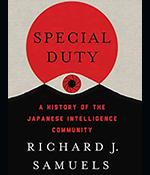
A Conversation about Japanese Politics and Public Policy with Richard Samuels
3/9/2021: What do the Tohoku Earthquake, Japanese intelligence, technology and national security policies, and energy and regional policies have in common? Richard Samuels has written about them, as well as the political leadership and institutions that have shaped them. In this conversation, he explains what his findings imply for Japan, Japan’s grand strategy, and U.S.-Japan relations today. -
 2/23/2021: When he wrote “No.1” in the 1970s, the late Ezra Vogel aimed to wake up a stagnant America. In an unexpected turn, it greatly impacted U.S. research on Japan and reshaped Japan’s own aspirations. The catchy title and direct U.S.-Japan comparison opened a new discourse across many academic disciplines as well as business and management; the resulting drive to “be number one” lives on today.
2/23/2021: When he wrote “No.1” in the 1970s, the late Ezra Vogel aimed to wake up a stagnant America. In an unexpected turn, it greatly impacted U.S. research on Japan and reshaped Japan’s own aspirations. The catchy title and direct U.S.-Japan comparison opened a new discourse across many academic disciplines as well as business and management; the resulting drive to “be number one” lives on today.
-
 2/2/2021: Once lauded as the answer to clean energy, nuclear’s risky nature and bad outcomes like the Fukushima Daiichi power plant disaster led to denuclearization, resulting in the partial return of coal and oil. Even with plans for alternatives like hydrogen and ammonia, it is still unclear if full denuclearization is feasible. As we chart a global path to a greener future, Japan’s choices on solutions like a carbon tax will be important.
2/2/2021: Once lauded as the answer to clean energy, nuclear’s risky nature and bad outcomes like the Fukushima Daiichi power plant disaster led to denuclearization, resulting in the partial return of coal and oil. Even with plans for alternatives like hydrogen and ammonia, it is still unclear if full denuclearization is feasible. As we chart a global path to a greener future, Japan’s choices on solutions like a carbon tax will be important.
-

The Power of Suganomics, with Jesper Koll
1/12/2021: Jesper Koll took a panoramic view over Japan’s current landscape - and wishes to be born-again as a 23-year old Japanese, hungry to take advantage of opportunities that come with disruption. His main themes for 2021 are: (1) Pragmatism: Suganomics is pushing stability through hands-on policy measures; (2) Private sector reform: the Covid-19 pandemic is a catalyst for corporate reform; (3) Profit: the corporate outlook for Japan is unique from the U.S. -
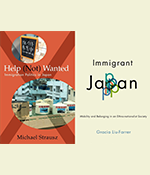
Japanese Immigration Policies with Gracia Liu-Farrer and Michael Strausz
12/8/2020: Japan’s lack of pro-immigration lobbying from labor-intensive businesses and influential strains of thought have hampered efforts to bring in more foreigners, despite policies that are immigrant-tolerant and polls showing public support. Japan must search its cultural toolbox for alternatives to the zeitgeist-dominating ethno-nationalism so they may create a better institutional framework for immigrant integration. -
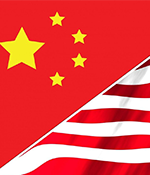
Japan-China Business Relations, with Hiroki Takeuchi and Victor Shih
11/24/2020: Impossible for many, decoupling from China may even be suicidal for Japan. Bringing China, Japan’s largest customer of input materials, into a broader rules-based international order would require China to undertake domestic economic reforms that threaten its development model. While China has expressed a willingness to participate, its actions are often contradictory and leave much to be desired. Japan might consider diversifying supply chains for more resilience, yet challenges remain. -
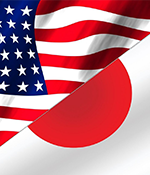
JFIT Roundtable: U.S.-Japan Relations after the Election
11/10/2020: Biden’s win has caused reservations in Japan about the personality, attention, and alignment of the U.S.-Japan relationship. Yet, Japanese counterparts welcome the return to predictability and discipline that was missing since 2016. While the U.S. may need to patch up other relationships, U.S.-Japan ties remain among the tightest in the world, cooperating on issues like Chinese expansion and North Korean aggression. -
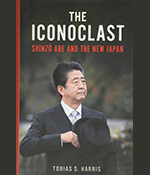
Shinzo Abe - The Iconoclast, with Tobias Harris
10/27/2020: Harris walks us through the personal aspects of Abe’s diplomatic style, and the decisions that led him to take a central role in trade negotiations and domestic reforms as he learned to balance idealism and leadership in his first term. Abe, then face of the new conservative LDP wing, went on to transform Japan into a global trade leader through administrative reforms that allowed him to be deeply involved with foreign policy decisions. -

Japan and Germany - Reluctant Warriors, with Ellis Krauss
10/13/2020: While neither is “pacifist,” Japan and Germany had uniquely peaceful constitutions imposed upon them. However, the institutional framework, regional context, and shifting threats in each country caused a notable diversion in their military relations. Krauss argues that the international liberal order, maintained historically by the U.S, seems to be crumbling - and although Japan and Germany may fill this gap, they are currently underequipped, perpetuating reliance on U.S. defense. -

Shifting Strategic Relations in Asia, with Andrew Yeo
10/6/2020: In response to the rise of China as a superpower, Japan leaned hard into its U.S. alliance and promoted the international liberal order, while South Korea remained more neutral. Yet, both countries’ alliances with the U.S. remain strong as the region hedges itself against China. Unlike in Europe, the Asian institutional framework reflects balance of power concerns more than liberal institutionalist considerations, and has more homogenous interests which complicate institutional structures. -
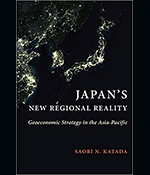
Japan’s Geoeconomic Strategy, with Saori Katada
9/8/2020: In the early 2000s, Japan’s geoeconomic strategy took a turn for the liberal. Once a trade villain, Japan has become a champion of the international liberal order, overtaking the U.S. An unintentional complement to Schaede’s Business Reinvention of Japan, Katada’s Japan’s New Regional Reality makes the case that shifts in the regional balance of power and Japan’s international political-economic structure pushed it towards its liberal strategy. -

Japan’s 2040 Energy Mix, with Masakazu Toyoda and Kenji Tateiwa
8/18/2020: Stressing that no energy source is perfect, Masakazu Toyoda, Chairman of IIE, proposes several quantitative energy targets for the 2040 energy mix. Kenji Tateiwa, from TEPCO, describes TEPCO’s transition into an “ambidextrous” company and outlines a qualitative “Anti-Fragile” grid strategy that could reinforce Japan’s energy mix in the future. -
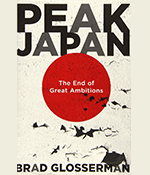
Peak Japan: Is This as Good as it Gets?, with Brad Glosserman
8/11/2020: Glosserman’s new book Peak Japan argues that Japanese complacency has impeded the country’s ability to adapt to maintain its global leadership position, by discouraging innovation, entrepreneurship, and the outward orientation that Japan must take in response to its shrinking population. However, Schaede’s The Business Reinvention of Japan argues that Japanese companies are innovating and staying competitive. -

The Politics of Abenomics, with Phillip Lipscy and Harukata Takenaka
7/14/2020: The impact of the 2020 Olympics’s postponement on Japan may be salvageable, or disastrous. Athletes may miss their peak, businesses will lose valuable expected revenue, and ticket holders will lose their summer trips. But the biggest challenge may be for the Abe government, which pinned so many aspirations – from diversity and inclusion to showcasing to the world that “Japan is back” – onto 2020. -

Japan’s Post-Fukushima Energy, with Nobuo Tanaka and Jeffrey Rector
7/7/2020: Japan is lagging on future-oriented energy policy, and society is paying the price. 2020 has marked an inflection point in global energy, as oil production has peaked and electricity is set to take over. Japan’s fragmented and monopolized grid connectivity and underdevelopment of renewable energies put it behind many other OECD countries for this transition. Despite this, rapid transformation is still possible. -

Japan’s Trade Policy in 2020, with Megumi Naoi and Christina Davis
6/9/2020: Japan’s unique export-oriented growth model, part of their new advocacy for free trade, may have paved the path for the ideological tensions, regional power shifts, and rising anti-globalist sentiment we see today in global trade. Japan’s strategy of containing and engaging China, alongside deteriorating South Korea relations, could hurt Japan’s pursuit of post-COVID leadership towards further globalization. -

Politics and Society, with Mizuho Onuma, Kay Shimizu, and Misashi Yoshikawa
4/28/2020: The low-case Abe government’s approval rating has declined, even as comparable others have seen these ratings go up. Experts point to a delayed emergency response and apparent indifference from the Japanese government as the main cause, despite recently improved response. Support programs have kept many businesses alive, allowing Japan to maintain low unemployment and control social distress.
Politics
Past JAPAN ZOOMINAR @ UC San Diego that focus on politics.
